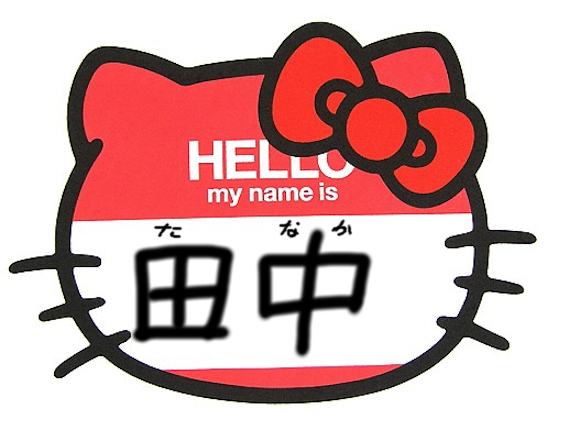
It’s a little-known fact that until the Meiji era (1868-1912), the ordinary men and women of Japan did not have surnames. Rather, those names were reserved for people in positions of power, nobility, or those of noted artistic ability.
There are an estimated 100,000 family names in Japan — much more than in many Western countries, and vastly more than in neighbouring Korea and China — however what’s curious is that of these surnames 10 are incredibly common, with millions of people sharing the exact same moniker. If you’re on your way to Japan or learning the language, knowing how to read and pronounce at least a few of these will almost certainly get you out of a jam at some point or other, so allow us to introduce Japan’s 10 most common surnames, their meanings, and a few fun facts on top, just because we’re nice like that and we like your face.
A period of great change in Japan, the Meiji era was one of tremendous social and cultural revolution. No longer an isolated island refusing to trade or communicate with the outside world, Japan’s new leaders propelled their country into the modern world, striving to compete with foreign visitors and rival Western inventions and thinking.
With this new way of thinking came a shakeup of established social systems, and all commoners were required by law to choose and register a family name for themselves. Many chose names that were already in use, hoping to gain a little extra credibility by sharing a name with those belonging to houses of nobility. Others adopted names reflecting their trade, role in society or simply the region they were from. It’s clear, though, that there were a number of favourites!
In ascending order, the most common Japanese surnames today:
- 10. Saitō
Persons with name*: 980,000
Written: 斉藤
Meaning: The first kanji, sai 斉, can be used to refer to a meal taken by monks and priests, but in broader terms it conveys an image of purity and divine worship. The second character, tō 藤 (pronounced with a long ‘oh’) can also be read as “fuji”, and means wisteria. The inclusion of this character suggests possible historical connections with the Fujiwara clan, and is found in a large number of Japanese family names, though how many of said families had genuine attachments to the group is debatable.
You may have heard of: Yuki Saitō, the Yokohama-born actress, essayist, author, devout Mormon and star of numerous movies and a bevy of Japanese TV dramas.
- 9. Kobayashi
Persons with name: 1,019,000
Written: 小林
Meaning: “Small forest”, using the kanji small 小 and woods/forest 林 (pronounced ‘hayashi’ on its own), the name may refer to the region its owner was from.
You may have heard of: 35-year-old Takeru Kobayashi, holder of four Guinness World Records for competitive eating. Fans of the 1995 film The Usual Suspects may also recall Kevin Spacey’s character Roger “Verbal” Kint repeatedly referring to a mysterious character named Kobayashi during his police interrogation…
- 8. Nakamura
Persons with name: 1,059,000
Written: 中村
Meaning: Literally ‘inside’ or ‘middle’ (naka 中), followed by village (mura 村). A person from the middle village, perhaps?
You may have heard of: Professional footballer Shunsuke Nakamura, who was the first Asian player to score a goal in the UEFA Champions League.
- 7. Yamamoto
Persons with name: 1,077,000
Written: 山本
Meaning: Composed of the characters mountain (yama 山) and base/origin (moto 本), this name is second only to Yamada (山田) for being nice, easy kanji to write, saving elementary school kids blessed with the name the hassle of learning kanji characters that they otherwise wouldn’t meet for years.
You may have heard of: Isoraku Yamamoto, the Marshall Admiral and commander-in-chief during the beginning of the Pacific War. Yamamoto went down in history for being the man ultimately responsible for the Japanese attack on Pearl Harbor in 1941. Moving swiftly on…
- 6. Itō
Persons with name: 1,080,000
Written: 伊藤
Meaning: The first kanji character, 伊 is also used to denote Italy, but historically speaking 伊 literally means ‘this’ or ‘that one’. Coupled with the aforementioned kanji for wisteria, 藤, we might again suggest that the name suggests links to the Fujiwara clan, however tenuous. The name is both written and pronounced differently to ito 糸 (which has a short ‘o’ sound, and means ‘thread’), so be sure to clearly pronounce that long “oh” at the end.
You may have heard of: Actor and anime voice actor Atsushi Itō, who played the nerdy male lead in popular TV drama Densha Otoko. Or perhaps you spotted 28-year-old Hanae Itō competing as a backstroke swimmer in the London 2012 Olympic Games?
- 5. Watanabe
Persons with name: 1,134,000
Written: 渡辺 (sometimes 渡邊)
Meaning: To cross or pass over 渡, and “area” or “border” 辺.
You may have heard of: Ken Watanabe, the go-to guy recently for seemingly every major role that calls for a Japanese actor. Watanabe has appeared in dozens of Western films including Letters from Iwo Jima, Batman Begins, and Inception. Look out for him in the US reboot movie Godzilla too.
- 4. Tanaka
Persons with name: 1,336,000
Written: 田中
Meaning: Literally “rice field” 田 and “middle/in” 中, the name most likely comes from those who owned or worked the “middle field” in any given town or village, and has stuck around ever since. Another nice, easy name to write, Jin Tanaka is also a popular placeholder name for used for things like credit card ads or shady people checking into hotels where Westerners would scrawl John Smith or Jane Doe.
You may have heard of: Tomoyuki Tanaka, the movie producer who brought us none other than the original (and best?) Godzilla.
- 3. Takahashi
People with name: 1,416,000
Written: 高橋
Meaning: “Tall/high” 高 and “bridge” 橋 suggests that perhaps the families who originally chose this name lived in an area beyond a deep valley crossed by long bridge. There again maybe they were going for something a little more symbolic rather than literal?
You may have heard of: the now extremely wealthy creator of such works as Inu Yasha and Ranma ½, Rumiko Takahashi.
- 2. Suzuki
People with name: 1,707,000
Written: 鈴木
Meaning: “Bell tree”. Suzu/rin 鈴 is a small round bell, the kind of which you might put on a cat’s collar. Why they’re being tied to trees 木 though, we’re not sure.
You may have heard of: New York Yankees’ outfielder Ichiro Suzuki. Despite moving to the US back in 2001 to play for the Seattle Mariners and currently residing in Washington, Ichiro remains something of a national treasure here in Japan, loved by aspiring baseball players, young kids in need of clean-cut heroes and pretty much every Japanese woman we’ve asked.
- 1. Satō
Number of people with name: 1,928,000
Written: 佐藤
Meaning: Alongside the ever-popular “tō” 藤, we find sa 佐, meaning “to assist”. Do todays Satōs descend from those with close ties to the once great clan, or did they just love the way it sounded and the image it conveyed? We may never know.
You may have heard of: Come on, was there ever any doubt that our own Mr. Sato should be associated with the top spot!? Proof if it were needed that our reporter extraordinaire really is the man.
There you have it, folks, the 10 most common Japanese family names. There may be a heck of a lot of others names out there, but with these 10 under your belt chances are you’ll already be familiar with a fair chunk of the Japanese population!
Title image via Freshnessmag edited by RocketNews24 Ichiro/Nakamura photos: Zimbio 1 2 Watanabe Ken photo: Cinemablend
Reference: Behind the names Zatsugakuki Wikipedia
*Figures are approximate and, of course, vary slightly from year to year.

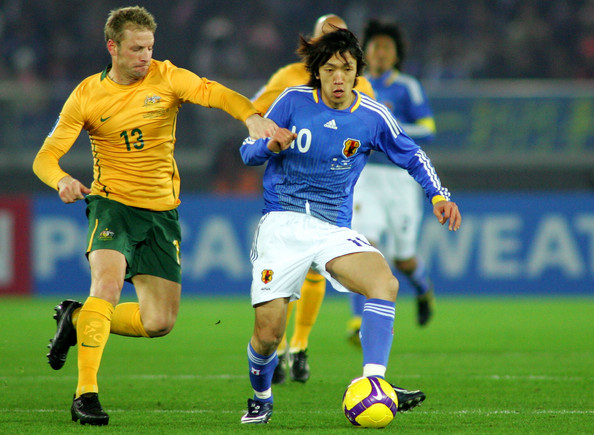

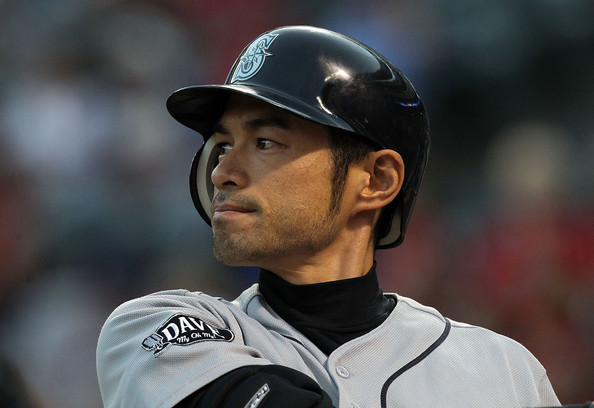
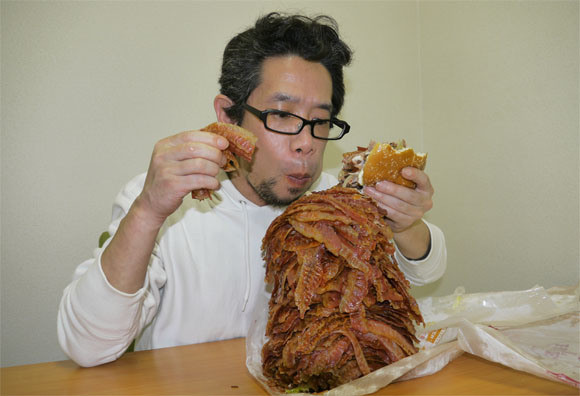
 Government statistics reveal the most common Japanese surnames, makes Mr. Sato sad
Government statistics reveal the most common Japanese surnames, makes Mr. Sato sad “Family name researcher” discovers the most common full name in Japan
“Family name researcher” discovers the most common full name in Japan Japan’s five most common family names
Japan’s five most common family names Name Game: Finding the origin and prevalence of Japanese surnames just got easier
Name Game: Finding the origin and prevalence of Japanese surnames just got easier Princesses, fruits, and blacksmiths: Study reveals the 30 most unusual family names in Japan
Princesses, fruits, and blacksmiths: Study reveals the 30 most unusual family names in Japan Japan has only one airport named after a samurai, so let’s check out Kochi Ryoma【Photos】
Japan has only one airport named after a samurai, so let’s check out Kochi Ryoma【Photos】 Development of Puyo Puyo puzzle game for use in nursing homes underway
Development of Puyo Puyo puzzle game for use in nursing homes underway 7-Eleven Japan’s sakura sweets season is underway right now!
7-Eleven Japan’s sakura sweets season is underway right now! Saitama is home to the best strawberries in Japan that you’ve probably never even heard of
Saitama is home to the best strawberries in Japan that you’ve probably never even heard of Family Mart’s Shibuya Cat Street shop hosts first-ever rescue cat photo exhibition for Cat Day
Family Mart’s Shibuya Cat Street shop hosts first-ever rescue cat photo exhibition for Cat Day Godzilla extends attack on seaside hotel in Japan, fans invited to hours-long escape room game
Godzilla extends attack on seaside hotel in Japan, fans invited to hours-long escape room game Brand-new Cardcaptor Sakura Cafe opens in Tokyo this week, with Kero-chan calling the shots
Brand-new Cardcaptor Sakura Cafe opens in Tokyo this week, with Kero-chan calling the shots Rental grandma service growing in Japan, can help cook or break up with boyfriends
Rental grandma service growing in Japan, can help cook or break up with boyfriends Kyoto’s for-adults immersive samurai theme park announces opening date
Kyoto’s for-adults immersive samurai theme park announces opening date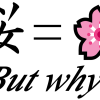 How to write “sakura” in Japanese (and why it’s written that way)
How to write “sakura” in Japanese (and why it’s written that way) The 10 most annoying things foreign tourists do on Japanese trains, according to locals
The 10 most annoying things foreign tourists do on Japanese trains, according to locals Starbucks Japan releases new sakura goods and drinkware for cherry blossom season 2026
Starbucks Japan releases new sakura goods and drinkware for cherry blossom season 2026 Is Sapporio’s Snow Festival awesome enough to be worth visiting even if you hate the snow? [Pics]
Is Sapporio’s Snow Festival awesome enough to be worth visiting even if you hate the snow? [Pics] Japan has trams that say “sorry” while they ride around town…but why?
Japan has trams that say “sorry” while they ride around town…but why? Tokyo Skytree turns pink for the cherry blossom season
Tokyo Skytree turns pink for the cherry blossom season Highest Starbucks in Japan set to open this spring in the Tokyo sky
Highest Starbucks in Japan set to open this spring in the Tokyo sky Japan’s new “Cunte” contact lenses aren’t pronounced like you’re probably thinking they are
Japan’s new “Cunte” contact lenses aren’t pronounced like you’re probably thinking they are Shibuya Station’s Hachiko Gate and Yamanote Line stairway locations change next month
Shibuya Station’s Hachiko Gate and Yamanote Line stairway locations change next month Yakuzen ramen restaurant in Tokyo is very different to a yakuza ramen restaurant
Yakuzen ramen restaurant in Tokyo is very different to a yakuza ramen restaurant Starbucks Japan adds new sakura Frappuccino and cherry blossom drinks to the menu
Starbucks Japan adds new sakura Frappuccino and cherry blossom drinks to the menu Japan’s newest Shinkansen has no seats…or passengers [Video]
Japan’s newest Shinkansen has no seats…or passengers [Video] Foreigners accounting for over 80 percent of off-course skiers needing rescue in Japan’s Hokkaido
Foreigners accounting for over 80 percent of off-course skiers needing rescue in Japan’s Hokkaido Super-salty pizza sends six kids to the hospital in Japan, linguistics blamed
Super-salty pizza sends six kids to the hospital in Japan, linguistics blamed Starbucks Japan unveils new sakura Frappuccino for cherry blossom season 2026
Starbucks Japan unveils new sakura Frappuccino for cherry blossom season 2026 Foreign tourists in Japan will get free Shinkansen tickets to promote regional tourism
Foreign tourists in Japan will get free Shinkansen tickets to promote regional tourism Take a trip to Japan’s Dododo Land, the most irritating place on Earth
Take a trip to Japan’s Dododo Land, the most irritating place on Earth Naruto and Converse team up for new line of shinobi sneakers[Photos]
Naruto and Converse team up for new line of shinobi sneakers[Photos] Is China’s don’t-go-to-Japan warning affecting the lines at a popular Tokyo gyukatsu restaurant?
Is China’s don’t-go-to-Japan warning affecting the lines at a popular Tokyo gyukatsu restaurant? Survey asks foreign tourists what bothered them in Japan, more than half gave same answer
Survey asks foreign tourists what bothered them in Japan, more than half gave same answer Japan’s human washing machines will go on sale to general public, demos to be held in Tokyo
Japan’s human washing machines will go on sale to general public, demos to be held in Tokyo Starbucks Japan releases new drinkware and goods for Valentine’s Day
Starbucks Japan releases new drinkware and goods for Valentine’s Day We deeply regret going into this tunnel on our walk in the mountains of Japan
We deeply regret going into this tunnel on our walk in the mountains of Japan Studio Ghibli releases Kodama forest spirits from Princess Mononoke to light up your home
Studio Ghibli releases Kodama forest spirits from Princess Mononoke to light up your home Major Japanese hotel chain says reservations via overseas booking sites may not be valid
Major Japanese hotel chain says reservations via overseas booking sites may not be valid Put sesame oil in your coffee? Japanese maker says it’s the best way to start your day【Taste test】
Put sesame oil in your coffee? Japanese maker says it’s the best way to start your day【Taste test】 No more using real katana for tourism activities, Japan’s National Police Agency says
No more using real katana for tourism activities, Japan’s National Police Agency says Mr. God? See which unusual names win Japan’s “Best of Family Names 2015” award
Mr. God? See which unusual names win Japan’s “Best of Family Names 2015” award Kanji fail — Japanese parents shocked to learn their baby girl’s name has inappropriate meaning
Kanji fail — Japanese parents shocked to learn their baby girl’s name has inappropriate meaning Japan announces new era name, Reiwa, but what does it mean and why was it chosen?
Japan announces new era name, Reiwa, but what does it mean and why was it chosen? Looking for baby names? The most popular ones in Japan this year are…
Looking for baby names? The most popular ones in Japan this year are… Japan’s top baby names for 2015: Will Naruto-influenced monikers still reign supreme?
Japan’s top baby names for 2015: Will Naruto-influenced monikers still reign supreme? Top 10 Japanese baby names of 2020 revealed
Top 10 Japanese baby names of 2020 revealed Pokémon Center apologizes for writing model Nicole Fujita’s name as Nicole Fujita
Pokémon Center apologizes for writing model Nicole Fujita’s name as Nicole Fujita The most popular Japanese baby names of the past 30 years, from Sakura to Shota
The most popular Japanese baby names of the past 30 years, from Sakura to Shota Dodge the biggest problem of giving yourself a kanji name with these for-foreigner personal seals
Dodge the biggest problem of giving yourself a kanji name with these for-foreigner personal seals The top 10 baby names in Japan 2013
The top 10 baby names in Japan 2013 New capsule toys reinvent Japan’s hanko personal seal stamp whether you like it or not
New capsule toys reinvent Japan’s hanko personal seal stamp whether you like it or not Top Japanese baby names for 2025 feature flowers, colors, and a first-time-ever favorite for girls
Top Japanese baby names for 2025 feature flowers, colors, and a first-time-ever favorite for girls Should people in Japan be allowed to keep their surnames after getting married, survey asks
Should people in Japan be allowed to keep their surnames after getting married, survey asks How to say every Japanese car brand’s name, and what they mean 【Video】
How to say every Japanese car brand’s name, and what they mean 【Video】 Draft bill proposal seeks to curtail unconventional “kirakira” kanji name readings in Japan
Draft bill proposal seeks to curtail unconventional “kirakira” kanji name readings in Japan